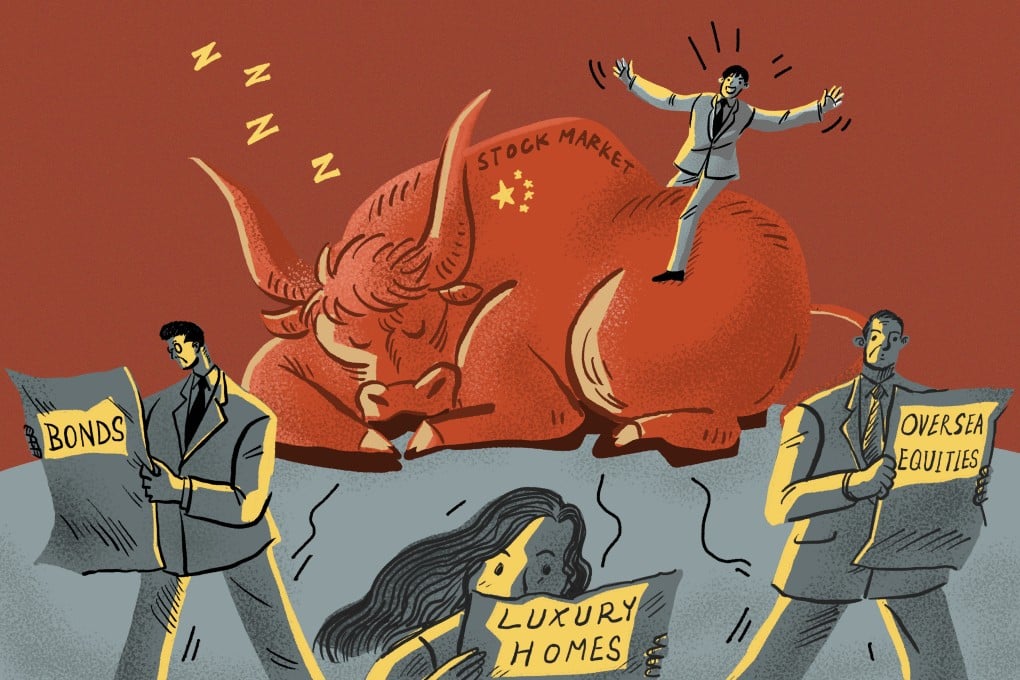China’s stock woes: funds shun equities for bonds, ETFs, luxury homes in downbeat market
- China’s moribund onshore equities are struggling to attract investors, with many turning to bonds, overseas ETFs and luxury homes instead

Antony Xu has steered clear of stocks as his investment portfolio has been unprofitable over the past few years.
“For now, I’d rather put my spare money in banks’ wealth management products,” said the 47-year-old accounting executive in Shanghai. “The returns are low, but at least I can make some money. I’ve been suffering paper losses from stocks for years and there’s no way I’ll increase my investments in the near term.”
Luring investors such as Xu to China’s US$8.2 trillion stock market has proved to be daunting for President Xi Jinping and financial regulators.
This is a setback for Wu Qing, the chairman of China Securities Regulatory Commission (CSRC), who rolled out a flurry of measures since he took over in February, from pledges to boost the quality of listed companies to crackdowns on short selling. After a brief rebound spurred by such state support, investors have been fleeing amid worries about the prospects of economic growth and corporate earnings.
